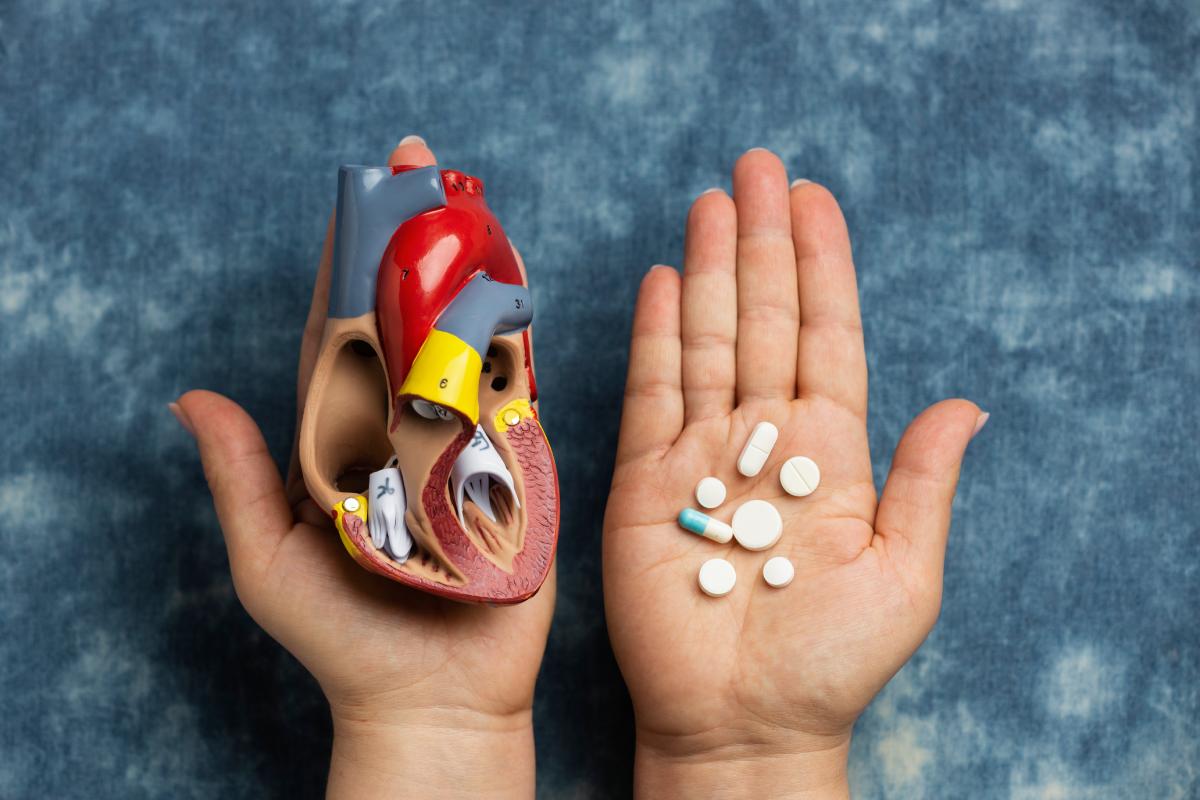Book on Whatsapp
9892101616
They Hide it from you! Find out why Diabetics’ blood sugar rises during Winter
Diabetes
Fri Nov 24 2023
The season of nut-crackling sounds and frozen winds is here. During the mercurial drop, the frost may have an exhilarating effect on some commoners while most Diabetics’ blood sugar levels are terribly mismanaged.
Wait! There’s more to this piece than meets the eye. It is crucial for diabetics to make adequate lifestyle modifications to manage their blood sugar levels in the best way possible.
It is a widely known fact that the chilling season makes us somewhat sedentary, slow and lethargic which triggers the rise in blood sugar levels.
There are several reasons why diabetic patients may experience increased blood sugar levels during the winter months:
1. Changes in physical activity: During the colder months, people tend to be less active due to reduced outdoor activities and decreased motivation to exercise. This can lead to higher blood sugar levels as physical activity helps regulate blood sugar by increasing insulin sensitivity.
2. Dietary changes: Winter holidays often involve indulging in high-calorie foods and beverages that are rich in sugar and carbohydrates. These types of foods can cause blood sugar levels to rise. Additionally, the consumption of warm drinks and comfort foods can lead to overeating and negatively impact blood sugar control.
3. Reduced exposure to sunlight: With shorter days and less sunlight, there is a decrease in vitamin D production. Vitamin D deficiency has been associated with insulin resistance and poor glycemic control in people with diabetes.
4. Viral infections: Cold and flu viruses are more prevalent during winter, and when diabetic patients get sick, blood sugar levels can become elevated due to the body's stress response. The release of certain hormones in response to illness can raise blood sugar levels.
5. Temperature and stress-related factors: Cold temperatures can cause blood vessels to constrict, which may impact the absorption and effectiveness of insulin. Additionally, winter months can be accompanied by increased stress levels, which can raise blood sugar levels in people with diabetes.
It's crucial for individuals with diabetes to maintain regular monitoring of their blood sugar levels and consult with their healthcare provider for any necessary adjustments to their treatment plan during the winter months.
6. Insufficient hydration: Cold weather and indoor heaters can dehydrate the body, leading to increased blood sugar levels. When the body is dehydrated, the kidneys produce more glucose, which can result in elevated blood sugar levels. It is important for diabetic patients to drink sufficient fluids throughout the day, even in the winter.
7. Lack of routine: The holiday season and winter break from work or school can disrupt daily routines, including meal times and medication schedules. Irregular eating patterns and inconsistent medication timing can lead to unstable blood sugar levels. It is important to establish and maintain a regular routine to help manage diabetes effectively.
8. Mood changes: Some individuals may experience a decrease in mood during the winter months, commonly known as seasonal affective disorder (SAD). Mood changes can affect appetite, motivation, and adherence to diabetes management practices, resulting in poor blood sugar control.
9. Cold and dry weather: Extremely cold temperatures can cause vasoconstriction, reducing blood flow to the extremities. This can affect the accuracy of blood glucose monitoring devices used on fingers and may result in inaccurate readings. Additionally, dry winter air can cause skin dryness and cracking, increasing the risk of infections and making insulin absorption less predictable.
10. Limited access to fresh produce: Winter months can limit the availability of fresh fruits and vegetables. This may lead to an increased consumption of processed and high-carbohydrate foods, negatively impacting blood sugar control. Diabetic patients should make efforts to include a variety of nutrient-rich foods in their diet, considering frozen or canned options when fresh produce is not readily available.
Remember, each individual's response to winter and its impact on blood sugar levels may vary. If you have diabetes, it's essential to monitor your blood sugar regularly, follow a healthy eating plan, stay physically active, and work closely with your healthcare team to adjust medications, if needed, to manage your diabetes effectively during the winter months.
Diagnosis
Manipal TRUtest offers a wide range of diagnostic services with assured quality, accuracy, and trust backed by 70 years of Manipal legacy. You can easily schedule a blood test through our WhatsApp Chatbot, Mobile App, or Website. We also provide the convenience of a Home Sample Collection, where a highly qualified phlebotomist will visit you in the comfort of your own home.
Related Tests
Related Packages
Related Blogs

Diabetes
Foods for Blood Sugar Control in Type 2 Diabetes
Managing Type 2 diabetes requires making smart choices, especially when it comes to food. What you eat plays a major role in controlling your blood sugar levels and maintaining overall health. With the right diet, you can feel more energetic, avoid complications, and enjoy a better quality of life. Eating well is a powerful step toward a healthier, happier you!
1. Leafy Green Vegetables
Leafy greens like spinach, kale, and fenugreek leaves are packed with vitamins, minerals, and fiber. They are low in calories and carbohydrates, which makes them ideal for people with diabetes. These vegetables also have antioxidants that help protect against inflammation and damage caused by high blood sugar levels.
2. Whole Grains
Unlike refined grains, whole grains such as oats, quinoa, brown rice, and whole wheat are rich in fiber. Fiber slows down the digestion process, preventing sudden spikes in blood sugar. Choosing whole grains over white rice or white bread can lead to more stable energy levels throughout the day.
3. Nuts and Seeds
Almonds, walnuts, chia seeds, and flaxseeds are excellent choices for people managing Type 2 diabetes. They are loaded with healthy fats, fiber, and protein, all of which helps to maintain blood sugar balance. A small handful of nuts as a snack can keep you full longer and prevent unhealthy cravings.
4. Fatty Fish
Fish like salmon, sardines, and mackerel are rich in omega-3 fatty acids. These healthy fats help reduce inflammation, lower triglyceride levels, and support heart health, which is very important for people with diabetes. Grilled, baked, or steamed fish twice a week can be a great addition to your diabetes-friendly diet.
5. Beans and Lentils
Beans, chickpeas, and lentils are affordable, nutritious, and highly beneficial for blood sugar control. They are rich in fiber and protein, which slow down the release of sugar into the bloodstream. Including a variety of legumes in your diet can improve both blood sugar and heart health.
6. Berries
Berries such as strawberries, blueberries, and raspberries are sweet but low in sugar compared to many other fruits. They also contain antioxidants and fiber. A small serving of berries can satisfy your sweet cravings without causing a blood sugar spike.
7. Greek Yogurt
Greek yogurt is a rich source of protein and probiotics, which can aid digestion and support metabolic health. It has fewer carbohydrates than regular yogurt and can help you feel full longer. Choose plain, unsweetened versions to avoid hidden sugars.
Controlling blood sugar doesn’t mean giving up tasty foods. With thoughtful planning and the right choices, you can enjoy a variety of delicious, nutritious meals that help manage Type 2 diabetes effectively. Regular health checkups through manipaltrutest.com can help you track your progress and make informed decisions about your diet and health. For those looking for regular health monitoring, visiting trusted centers like Manipal TRUtest can ensure you stay updated on your health.

Diabetes
Understanding the Link Between Diabetes and Heart Health
Diabetes is associated with heart health. Anyone has diabetes, it is essential that understand how diabetes impacts the heart and that can be done to make sure well-being. Individuals more often than not do not understand that the risk of heart disease is finely tuned due to diabetes, but the good news is that some minor lifestyle modifications can assist in its preventive care.
Diabetes affects the heart
Diabetes is a circumstance that influences the body capability to manage blood sugar (glucose) levels, most considerably to severe health complications in the long run. It is one of the most important dangers of diabetes is its consequence on the heart and blood vessels. The persistently high blood sugar can harm the blood vessels and the nerves that standardize the heart, and also improve the risk of heart-related complications. The people with the diabetes are almost twice as probable to acquire heart disease as those who do not have the situation. This risk becomes even higher for persons who have additional health concerns such as the high cholesterol, obesity, or the smoking. Common cardiovascular complications that include heart attacks, strokes, high blood pressure, and congested arteries, all of which can severely blow overall health. This manage the blood sugar levels through a healthy lifestyle, and proper medication, and regular check-ups it is essential in reducing the risk of heart disease and maintaining overall well-being.
Warning Signs of Heart Disease
Heart diseases are slow to develop, with the major problem of patients being unable to notice symptoms until the condition has already worsened considerably. However, certain warning signs are definitely not to be ignored, for they, in a way, can signal a severe product of the heart. They are: chest pain or discomfort, shortness of breath, swelling in the legs, feet, or ankles, and frequent dizziness. These symptoms can manifest in many heart disorders and should be immediately evaluated by a doctor. Such symptoms could lead to severe complications like a heart attack or stroke. People with such symptoms should get emergency medical help to avoid further damage and get speedy treatment.
Ways to Protect Your Heart
The good news is that administration diabetes properly can also help decrease the risk of heart disease. To take the small but consistent steps can make a big difference in keeping heart healthy. To start by monitoring blood sugar frequently and taking medications as prearranged by doctor. To eat the balance diet filled with fresh fruits, vegetables, whole grains, and lean meats while avoiding excess sugar, salt, and fried foods can support both heart and overall health. To be active is just as important whether its is a 30-minute walk, some yoga, and simple exercises, movement helps keep the heart strong. Stress that can also take a toll, raising blood sugar and blood pressure, so try relaxation techniques like meditation, engaging and deep breathing in hobbies. The smoke, that consider quitting as soon as possible since smoking indemnity blood vessels and increases the risk of heart disease. Lastly, the regular check-ups with the doctor can help to detect any possible problems early, ensuring the heart stays in good shape.
Conclusion
From the above discussion, it can be concluded that diabetes and heart disease are closely related, but with the right care, one can keep the heart safe and live a healthy life. Small changes in lifestyle, such as healthy eating, exercise, stress management, and regular check-ups, can go a long way. Additionally, undergoing a diabetic profile test can help monitor blood sugar levels and overall health. These small steps taken daily reduce risks and keep the heart healthy and strong.

Diabetes
Importance of Blood Sugar Test for Health Monitoring
Blood sugar tests are critical instruments in healthcare, providing crucial information about a person's health, particularly for illnesses such as diabetes. Regular blood sugar monitoring can help discover irregularities early, treat existing diseases, and avoid major health complications. This simple but significant test provides critical information on the extent to which the body processes glucose, the main source of power for our cells. Understanding the significance of blood glucose testing is critical to achieving overall wellness.
Early Detection of Diabetes
One of the most important reasons for a test for blood sugar is to detect diabetes or prediabetes early on. Diabetes is a disorder in which the body fails to efficiently regulate blood sugar levels, either due to inadequate production of insulin (Type 1) or insulin resistance (Type 2). Healthcare providers can detect signals of high glucose levels even before symptoms appear. Prediabetes is a condition in which blood sugar levels are above normal but are not yet sufficiently elevated to be classed as diabetes. Early detection of prediabetes enables modifications to their lives, such as dietary changes and more physical activity, that can help avoid the development of diabetes of the type 2 variety.
Monitoring Existing Conditions
Individuals who have already been diagnosed with diabetes require regular blood sugar tests to monitor and manage the illness. Consistent testing allows you to see how well your treatment strategy is working and whether you need to change your meds or lifestyle. Maintaining blood sugar levels within a target range helps lower the risk of consequences associated with poorly managed diabetes, such as heart disease, harm to the kidneys, nerve damage, and eye issues. Blood sugar monitoring also allows people to make real-time choices regarding their food, activity, and medicine. For example, if blood sugar levels are abnormally high or low, a person may implement corrective action such as eating carbs, altering dosages of medicines, or participating in physical activity.
Preventing Complications
Many problems can arise from uncontrolled blood sugar levels. For example, hyperglycemia, or persistently elevated blood sugar, can harm blood vessels and result in kidney failure, stroke, and cardiovascular disease. Conversely, hypoglycemia, or extremely low blood sugar, is a potentially fatal condition that can result in disorientation, lightheadedness, and even unconsciousness. By enabling people to detect changes in their blood sugar levels early and take the appropriate steps to avoid more difficulties, routine blood sugar testing helps avoid severe hyperglycemia and hypoglycemia. This is especially crucial for people who have an extended family history of diabetes, obesity, high blood pressure, or other conditions that put them at high risk of problems
Promoting Better Lifestyle Choices
Additionally, blood sugar checks motivate people to lead healthier lives. The test findings give quick insight into how blood sugar levels are impacted by medication adherence, exercise habits, and food choices. People may be encouraged by this feedback loop to follow their treatment regimens, eat better, and exercise frequently. For example, a person may be motivated to change their eating habits if they observe a rise in blood sugar following the consumption of sugary foods. Regular testing can also help people make better decisions about their physical activity by educating them about how various forms of exercise impact their blood sugar.
Conclusion
A crucial component of health monitoring is blood sugar testing, particularly for those who have diabetes or are at risk of developing it. It guarantees efficient treatment of diabetes, aids in its early detection, and averts long-term consequences. Frequent blood sugar checks yield useful information that can direct prescription modifications, lifestyle changes, and general health enhancements. People can improve their overall standard of life and keep more power over their health by integrating blood sugar levels monitoring into their everyday routine
